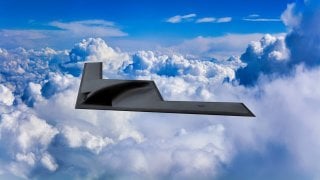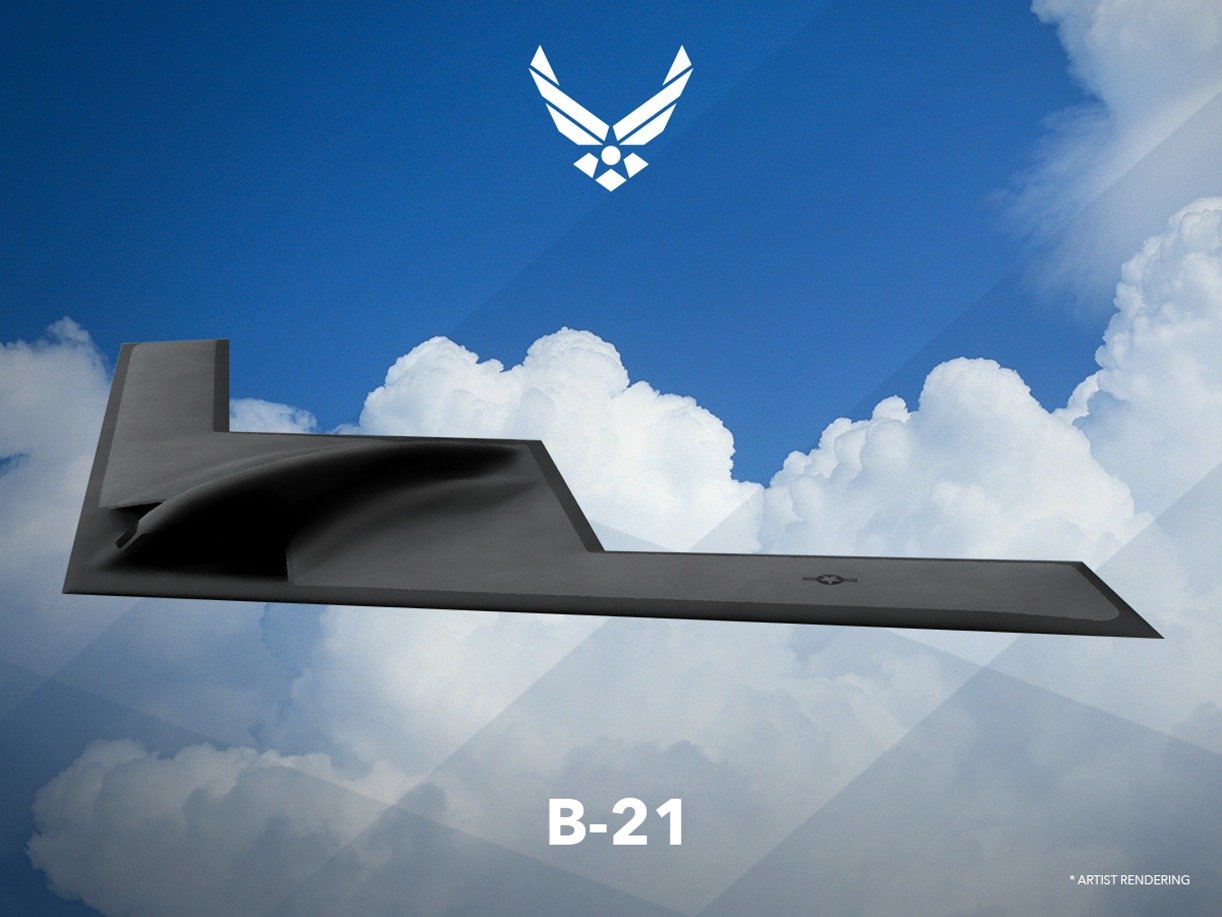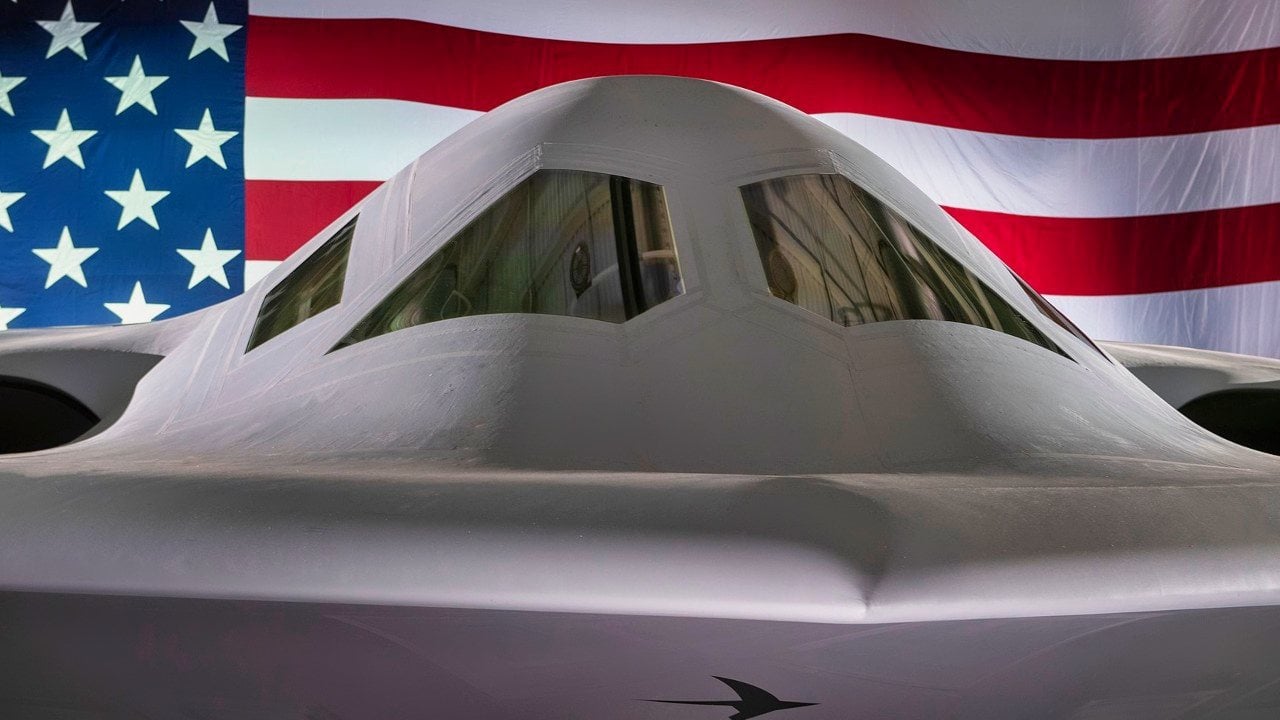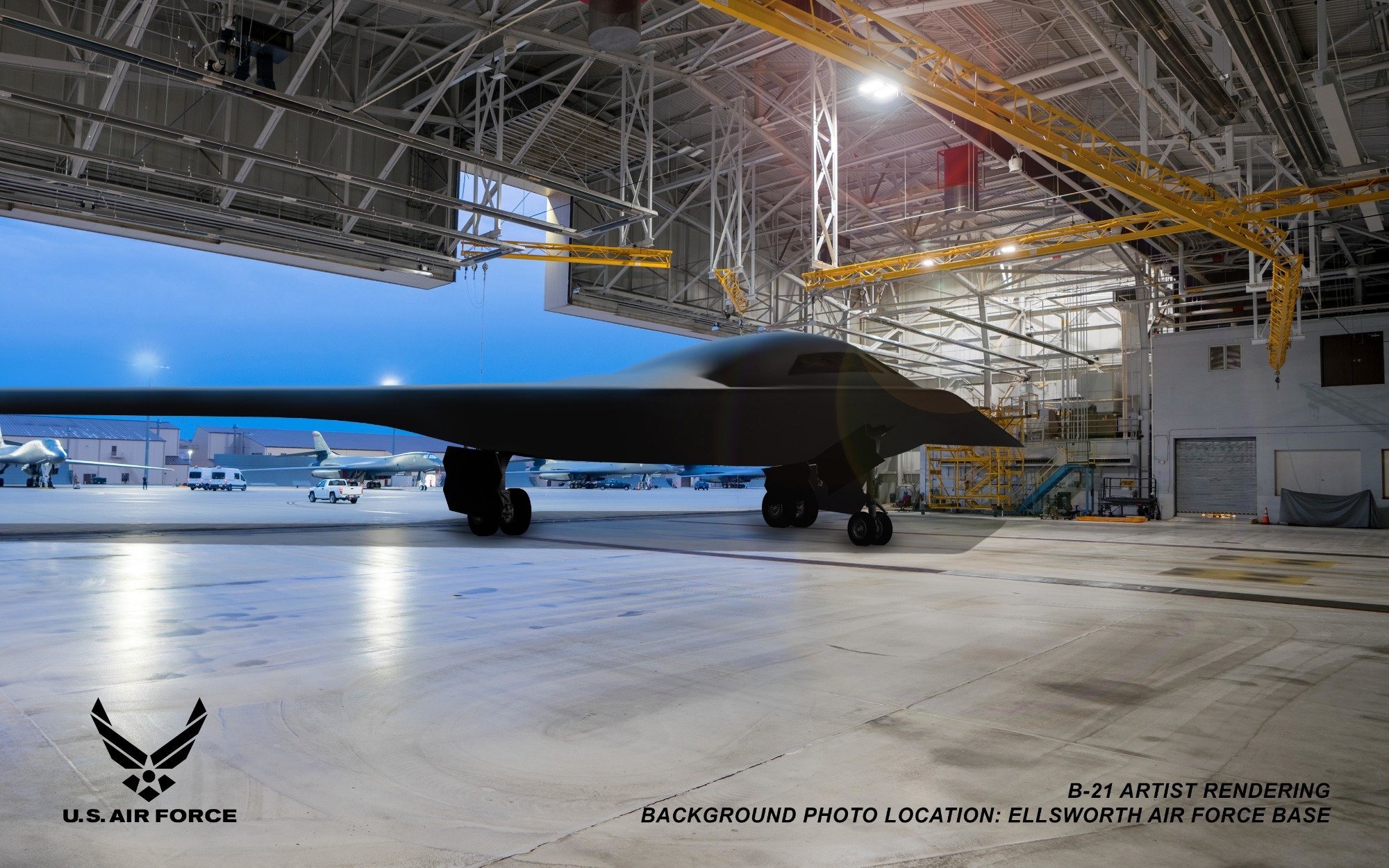John Venable

The B-21: A Critical Component of Today’s Air Force— America needs the B-21 Raider stealth bomber now.
The Air Force’s newest bomber, the B-21 “Raider,” is built around the most sophisticated and easily maintained stealth technology ever developed. The kit and capabilities inside the jet will allow the United States to hold virtually any conventional or nuclear target in the world at risk. Unfortunately, the Pentagon’s plan to acquire just 100 B-21s, coupled with the proposed rate of acquisition, is insufficient to deter our peer adversaries, much less assure victory, should war arise.
Let’s start with the current state of the Air Force and why its need is so great.
The Air Force has withered significantly since the Soviet Union collapsed in 1991. In 1987, the service had 4,468 fighters and 331 bombers, and that fleet was so new that it was easy to keep those weapons systems ready for combat. On any given day, more than 80 percent of the fighters and B-52 bombers were mission-capable.
The defense funding cuts that followed the Soviet Union’s collapse led to a gradual reduction in capacity. Coupled with the withering effects of the Global War on Terror and the service’s mismanagement of the surge in funding since 2017, the Air Force now possesses just 2,038 fighters and 140 bombers. By any standard, today’s fleet is the oldest, smallest, and least ready in Air Force history.
The average fighter is now twenty-six years old, and the average bomber is forty-nine. That makes maintaining these jets a challenge. Just 60 percent of the service’s combatant aircraft are mission-capable. If tensions between the US and China escalate to war, the Air Force will have less than a third of the combat-capable fighter and bomber assets when it was last prepared to fight a peer adversary.
Unfortunately, the distances and basing challenges associated with a fight with China are markedly more challenging than those we faced with the Soviet Union. The plethora of allied bases in Europe, coupled with the relatively short distances involved, allowed fighters to handle the majority of the combat sorties required to take on the Warsaw Pact. Bombers, staging out of bases in England, were just 1,300 nautical miles from targets surrounding Moscow - a round trip that our B-52s could accomplish without air refueling.
The basing options for a fight with China are much more limited. The somewhat survivable base closest to mainland China is Anderson Air Force Base in Guam. Fighters sortieing out of Anderson to protect Taiwan would fly 1,700 NMs one way. If hostilities go full-bore, Anderson would be inundated by China’s deep magazine of long-range, precision missiles, forcing bombers to be staged out of the U.S. B-2s flying out of Whiteman AFB, Mo. would fly more than 6,700 miles to hit targets near Beijing.

That twenty-eight-hour round trip would limit mission-capable bombers to flying one sortie every thirty-six hours. Executing a viable operational plan against China would require a fleet of more than 210 mission capable bombers, while still holding a nuclear alert posture. The total demand would require a fleet of more than 300 bombers. Unfortunately, the service is woefully short of that number.
The Air Force has 112 operational (non-training) B-2s, B-1s, and B-52s. With a 60 percent mission capable rate, it could launch a maximum of sixty-seven bombers at any given time—without withholding assets for nuclear alert. The service’s current strategy for the B-21 is to procure 100 total jets at a rate of 10 jets a year, and it will be lucky to declare its first squadron as operational by 2027.

Unfortunately, China’s military rise has far exceeded expectations, and one of the service’s most senior leaders believes it could move on Taiwan as early as next year. To deter that move and be prepared for war should deterrence fail, the Air Force must move immediately to accelerate the fielding of the Raider, increase the rate of production to twenty jets a year, and acquire a fleet of at least 225 jets.

America needs the B-21 now more than ever, and we need to move mountains to bring it to bear as quickly as we can.
No comments:
Post a Comment